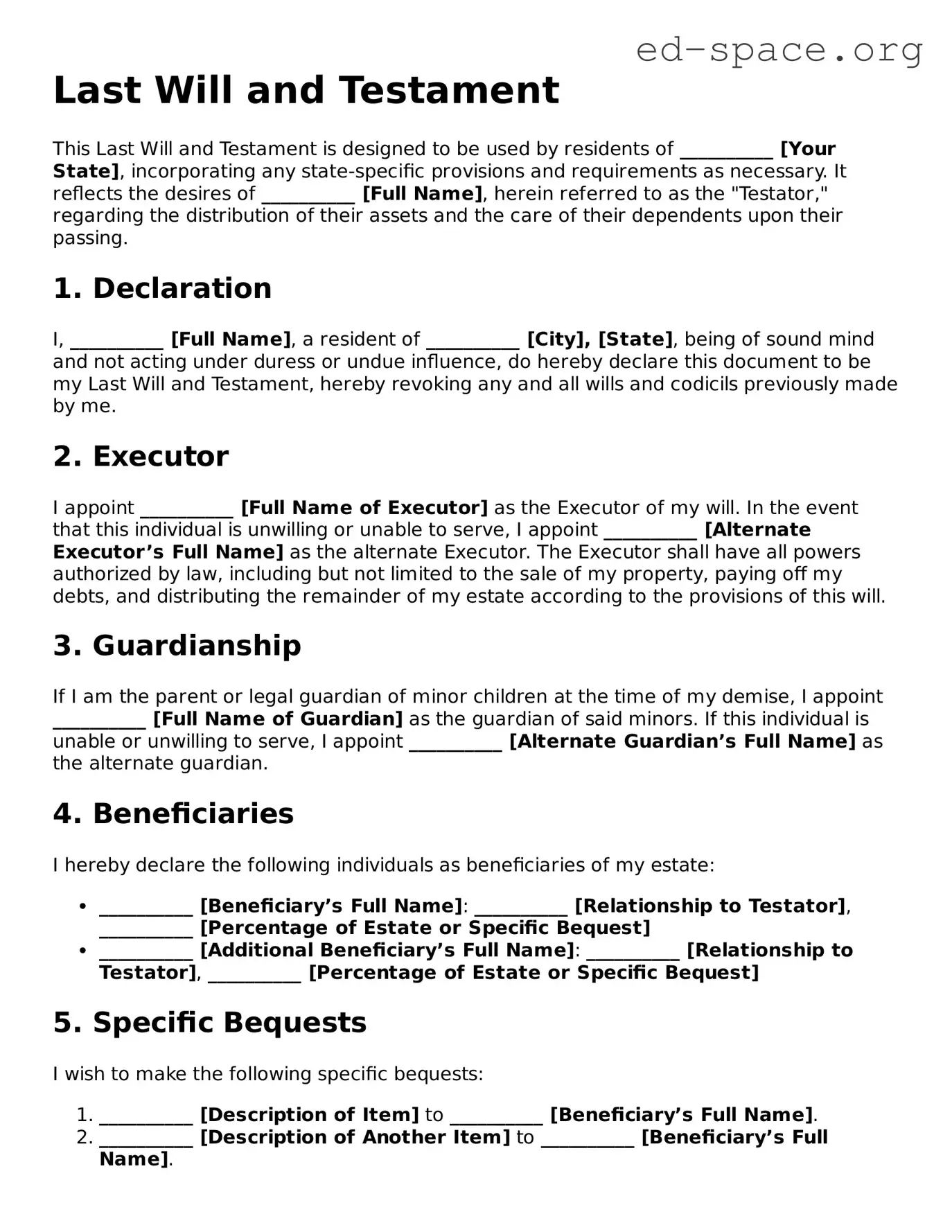Last Will and Testament
This Last Will and Testament is designed to be used by residents of __________ [Your State], incorporating any state-specific provisions and requirements as necessary. It reflects the desires of __________ [Full Name], herein referred to as the "Testator," regarding the distribution of their assets and the care of their dependents upon their passing.
1. Declaration
I, __________ [Full Name], a resident of __________ [City], [State], being of sound mind and not acting under duress or undue influence, do hereby declare this document to be my Last Will and Testament, hereby revoking any and all wills and codicils previously made by me.
2. Executor
I appoint __________ [Full Name of Executor] as the Executor of my will. In the event that this individual is unwilling or unable to serve, I appoint __________ [Alternate Executor’s Full Name] as the alternate Executor. The Executor shall have all powers authorized by law, including but not limited to the sale of my property, paying off my debts, and distributing the remainder of my estate according to the provisions of this will.
3. Guardianship
If I am the parent or legal guardian of minor children at the time of my demise, I appoint __________ [Full Name of Guardian] as the guardian of said minors. If this individual is unable or unwilling to serve, I appoint __________ [Alternate Guardian’s Full Name] as the alternate guardian.
4. Beneficiaries
I hereby declare the following individuals as beneficiaries of my estate:
- __________ [Beneficiary’s Full Name]: __________ [Relationship to Testator], __________ [Percentage of Estate or Specific Bequest]
- __________ [Additional Beneficiary’s Full Name]: __________ [Relationship to Testator], __________ [Percentage of Estate or Specific Bequest]
5. Specific Bequests
I wish to make the following specific bequests:
- __________ [Description of Item] to __________ [Beneficiary’s Full Name].
- __________ [Description of Another Item] to __________ [Beneficiary’s Full Name].
6. Residual Estate
Any portion of my estate not specifically bequeathed shall be distributed as follows:
To __________ [Beneficiary’s Full Name], I leave the rest, residue, and remainder of my estate.
7. Signatures
This Last Will and Testament was signed on __________ [Date], at __________ [Location], in the presence of two witnesses, as required by the laws of the State of __________ [State].
_____________________________
__________ [Testator's Full Name] (Testator's Signature)
Witness #1: _____________________________
Print Name: __________ [Witness #1 Full Name]
Witness #2: _____________________________
Print Name: __________ [Witness #2 Full Name]
8. Notary
To further attest to the validity of this Last Will and Testament, it is recommended that the signing be witnessed by a Notary Public.
Notary Public: _____________________________
My Commission Expires: __________ [Expiration Date]
